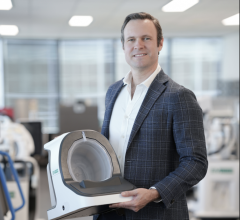
April 5, 2012 — The American College of Cardiology (ACC) released a list of “Five Things Physicians and Patients Should Question” in cardiology as part of Choosing Wisely, an initiative of the ABIM Foundation. The list identifies five targeted, evidence-based recommendations that can support physicians in working with their patients to make wise choices about their care.
The list identified the following five recommendations:
- Cardiac imaging tests (particularly stress tests or advanced noninvasive imaging) should not be given if there are no symptoms of heart disease, or if high-risk factors like diabetes or peripheral arterial disease (PAD) are not present.
- Cardiac imaging tests (particularly stress tests or advanced noninvasive imaging) should not be given as part of a routine follow-up in patients who have had no change in signs or symptoms.
- Cardiac imaging tests (particularly stress tests or advanced noninvasive imaging) should not be given prior to performing low-risk surgery that is not related to heart disease.
- Echocardiography, which uses sound waves to create images of the heart, should not be used as routine follow-up care in adults with mild heart valve disease and who have had no change in signs or symptoms.
- Patients experiencing a heart attack and undergoing percutaneous coronary intervention (PCI) should not have stents placed in an artery or arteries beyond those responsible for the heart attack.
“We believe that providing quality care guided by the latest research and guidelines is the best way to manage healthcare resources,” said James W. Fasules, M.D., FACC, senior vice president of advocacy at ACC. “Informed conversations between physicians and patients are a critical element of quality care. We were pleased to join the Choosing Wisely initiative to raise awareness in the medical community and among patients. More care is not always better care. We support the right care at the right time.”
All the lists released as part of Choosing Wisely were developed by the partner organizations after careful consideration and review over many months. Using the most current evidence about management and treatment options within their specialty areas of expertise, the “Five Things” lists include recommendations that can make the biggest impact on patient care, safety and quality.
ACC asked its standing clinical councils to recommend between three and five procedures that should not be performed or should be performed more rarely and only in specific circumstances. ACC staff took the councils’ recommendations and compared them to the ACC’s existing appropriate use criteria (AUC) and guidelines, choosing items for the five things list that had the tightest inappropriate score in the AUCs and were Class III recommendations in the guidelines. The ACC’s Advocacy Steering Committee and Clinical Quality Committee each then reviewed the five items before sending it to the ACC Executive Committee for final review and approval. ACC’s disclosure and conflict of interest policy can be found at www.cardiosource.org/RWI.
Also working with the ABIM Foundation to lead the campaign is independent nonprofit consumer organization Consumer Reports. Eight other national medical specialty societies also released individual lists of recommendations, covering tests or procedures commonly used but not always necessary.
By creating and releasing the lists, the groups aim to spark nationwide conversations between physicians and patients about the need – or lack thereof – for many frequently ordered tests or treatments. Some experts say that as much as 30 percent of care delivered in the United States is duplicative or unnecessary and may not improve people’s health.
For more information: www.cardiosource.org/ACC, www.abimfoundation.org, www.ChoosingWisely.org.


 August 09, 2024
August 09, 2024 








